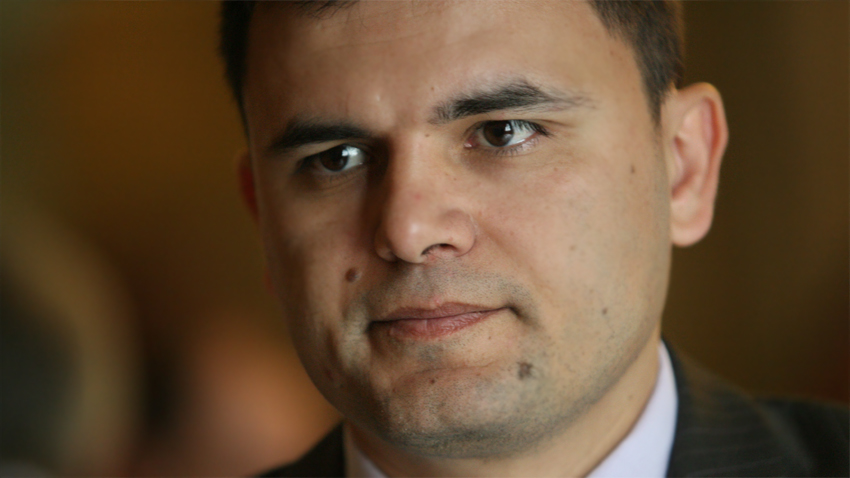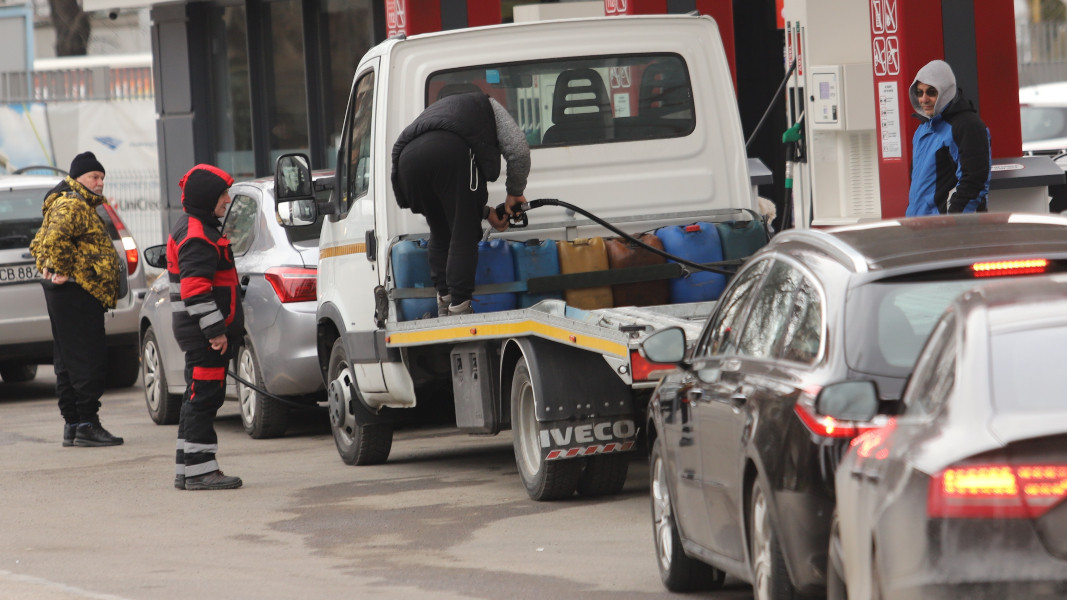“There is no immediate danger to Bulgaria whatsoever for the moment, as we can see things are stable. But we are all paying a higher price because of the enormous risk factored on international exchanges,” Latchezar Bogdanov, chief economist at the Institute for Market Economics comments. In his words, there are practically no Bulgarian investments in Russia, and exports last year amounted to just under half a billion euro.
But the price Ukraine is going to pay is going to be very high, Latchezar Bogdanov says in an interview with Radio Bulgaria:
“There is real destruction on the territory of Ukraine, so the problems there are connected not only with impeded trade, but also with a halt in the production process, there is destroyed infrastructure, buildings etc., which, when peace is achieved is going to require a vast economic expenditure. Of course, there are no such direct damages in Russia.”

Latchezar Bogdanov says that the sanctions are already impacting the Russian financial system and that this is affecting the daily lives of Russian businesses and citizens – from the devaluation of the Russian currency to the fact that money cannot be transferred outside the country.
What kind of realignment of the economies are the sanctions against Russia going to bring about, including in trade ties between Russia and Europe?
“Europe is dependent on Russia mostly for energy raw materials, and most of all – natural gas. But even in this, this winter, dependence on Russian natural gas is 27%-28%, which means that we have a decline compared to several years ago, when the share of consumption of Russian gas in the EU stood at around 40%. These raw materials can be obtained from other markets, from a purely practical point of view, though at higher prices at this time because of the overall uncertainty and the war.

Quite the opposite is true of the Russian economy – it is very much dependent on being able to sell in Europe. As to natural gas specifically – it has many alternatives. Even China does not have a capacity for transmission. But that too would lead to dependence of Russian gas on a sole customer, and that would carry a political risk for Russia.”
What are the economic risks for Bulgaria? We are seeing a rise in the prices of natural gas, oil. Is there speculation with the war?
“At this time Russian deliveries to Europe have not stopped. Of course, that is a purely political decision. The price of Brent crude oil has gone up on all exchanges, at the same time the price of Russian Urals gas has gone down because many European clients are refusing to buy Russian gas. At the moment world exchanges are factoring an escalation of the war, heavier sanctions and a total cutoff of deliveries into the prices, and that pushes them up. If the conflict is resolved very quickly, I believe things will move in the opposite direction, and prices on the global markets would go into reverse.”
Will there be a shock to the tourism industry in Bulgaria?
“In recent years, tourists from Russia and Ukraine have accounted for 3% to 8% of all tourists, which means that combined, the two countries contribute 6.5% – 8 % of the tourist traffic into Bulgaria annually. The Covid crisis brought about a decline in visits from Russia anyway, mostly connected with the requirements for a green certificate, tests etc. So that tourism has already had one shock with the decline in the number of tourists from Russia, not so much from Ukraine. The consequences will be harsh, but we must be realists – after all they only account for 10% of the total flow of tourists coming to Bulgaria.”
The number of refugees in Europe is now in excess of 1.5 million. As of 7 March, 38,000 Ukrainians had entered the country, more than 60% of them in transit. Is Bulgaria ready to cope with such a huge, for the scale of the country, inflow of people?

“We have a paradox of a kind here. For quite a few years, business organizations have been trying to find a way to make access by citizens of third countries easier. Ukraine is one of the countries on the market of labour workers can be drawn from. We are now finding ourselves in a situation in which some of the refugees are coming to Bulgaria, but Bulgaria is unprepared, even after the EU decision to grant temporary protection status with the right to work for the entire European Union. Our procedures, our institutions are still not ready – they seem surprised by all this. The work of the administration, of all people along the line, needs to be reorganized so as to enable the people fleeing from the war to exercise their profession, to feel they are part of the Bulgarian economy.”
They say that the overall impact of the crisis in the mid and long term will be much more severe. What is meant by that?
“In a way the war put a price tag on security. Europe had got accustomed to taking security for granted, believing there was no need to spend money to protect itself from aggression. On the other hand, the same was true of the energy dependence on just one supplier, dominated by the government. In this instance the Russian energy deliveries are controlled by the government of the Russian Federation. To overcome this dependence, first, a high economic price has to be paid for energy independence in the short term, and in the mid and long term a lot of investments have to be made so as to reorganize the entire European economy, and not to rely on one supplier to such an extent.
For Bulgaria it is very important to finish the gas interconnector with Greece so that we may have an alternative source of gas. That is something of utmost urgency.”
Photos: BGNES
Bulgaria’s state gas supplier Bulgartransgaz has been “decapitalised” by a contract with Turkish company Botaş, Energy Minister Zhecho Stankov warned on Thursday, saying the deal could also threaten gas supplies to local district heating companies...
In the second quarter of the year, the average salary increased by 12% year over year, reaching €1,315.04. Borislav Gutsanov, the Minister of Labor and Social Policy, announced this information after today's meeting of the National Council for..
As of August 8, 2025, the mandatory indication of prices for all goods and services in Bulgaria in two currencies – in Bulgarian leva and in euros – has been in effect. This obligation will remain valid for traders for a period of one year – until..
With the introduction of the euro on January 1, Bulgaria will benefit from the stability, liquidity and all the advantages of the common currency,..

+359 2 9336 661
